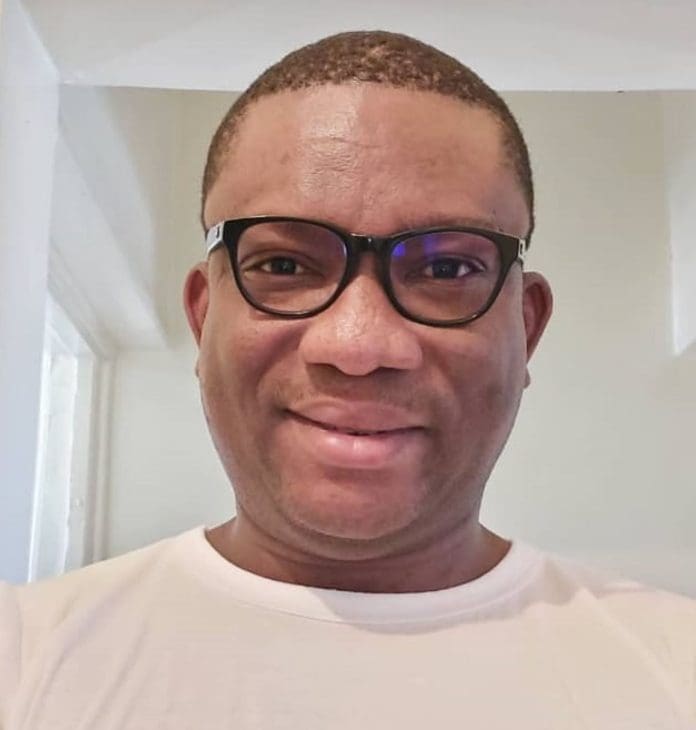Author: Dominic Eyram Abordzie
Ghana’s renewed commitment to mother tongue instruction marks a transformative shift in education—one that prioritises comprehension, cultural identity, and inclusive learning for all children.
I remember standing in front of my class as an English teacher, watching bright-eyed pupils struggle to grasp concepts that felt so simple to me—but so foreign to them. I’d explain, rephrase, simplify, and sometimes even switch to a local language off-script, just to help the lesson land. Still, many days ended with blank stares and quiet frustration.
Not because the children weren’t capable, but because the language of instruction was a barrier. Teaching felt like decoding, not discovery. It was exhausting—for me and for them.
So when I heard the news that Ghana is removing English as the main language of instruction in early basic education, I felt a deep sense of joy. The directive, issued by Minister of Education Hon. Haruna Iddrisu to the Director General of the Ghana Education Service (GES), came during the launch of the Free Tertiary Education Programme for Persons with Disabilities on October 24, 2025.
The Minister emphasised that foundational learning must begin in the language children understand best.
Deputy Minister Dr. Clement Apaak later clarified that the policy applies specifically to Kindergarten through Primary Three, not the entire basic school system. This targeted approach reflects global best practices and aligns with UNESCO’s advocacy for mother tongue-based multilingual education.
A Child’s Plea for Connection
During his speech, Minister Iddrisu shared a poignant anecdote about a young girl in the Ashanti Region who asked her teacher, “Please speak a little Twi.” Whether apocryphal or not, the story resonates deeply.
It captures the everyday reality of countless children who enter school fluent in their mother tongue, only to be taught in a language they barely understand. That simple plea is a call for connection, dignity, and learning that feels human.
A Return to Ghana’s Educational Roots
This isn’t Ghana’s first attempt at mother tongue instruction. In the 1950s and 60s, the Accelerated Development Plan and the 1961 Education Act supported local language instruction in the early years. However, the 2002 English-only policy disrupted this trajectory, leading to comprehension gaps and educational inequities.
Now, Ghana is returning to a child-centred model. Research from Zambia, Ethiopia, and South Africa shows that mother tongue instruction improves literacy, numeracy, and classroom engagement.
A study by Bernard Nchindila found that learners taught in their native language performed better in science and mathematics than those taught exclusively in English.
Teaching in local languages also strengthens cultural identity and promotes national unity. Ghana’s Bureau of Languages currently supports instruction in 11 Indigenous languages, including Ewe, Twi, Dagbani, and Ga.
This policy could empower vocational training, boost entrepreneurship, and preserve Ghana’s rich linguistic heritage.
Global Voices and Local Wisdom
Ghana’s move echoes the sentiments of African intellectuals and global education advocates:
Ngũgĩ wa Thiong’o, Kenyan scholar, argues that “language carries culture,” and that teaching in colonial languages alienates learners from their roots.
Nelson Mandela famously said, “If you talk to a man in a language he understands, that goes to his head. If you talk to him in his language, that goes to his heart.”
Olusegun Obasanjo, former Nigerian president, emphasised that “a child learns best in the language he or she understands best,” linking mother tongue instruction to national development.
UNESCO and UNICEF continue to advocate for mother tongue-based multilingual education as a pathway to inclusive, equitable learning.
Balancing Local and Global Languages
Of course, concerns remain. English is still the language of global business, academia, and diplomacy. Will Ghanaian learners fall behind if they don’t master it early? Experts recommend a bilingual approach: begin with the mother tongue to build cognitive foundations, then gradually introduce English. This model ensures learners are confident in their identity and equipped for the world.
A New Era of Teaching
For me, this policy feels like a breath of fresh air. It makes teaching feel less like a battle and more like a partnership. Should I return to the classroom? Maybe now, with this new direction, schools will become places of belonging, not confusion. Maybe now, we’ll meet children where they are and grow together.
Ghana is telling our children, “You don’t have to change who you are to learn. We’ll teach you in your own words, your own rhythm, your own voice.” And that, to me, is the beginning of something beautiful.
“Edzɔ dzi nam esi wogblɔ be ele be míazã míaƒe nutoa me gbewo le nufiafia kple nusɔsrɔ̃dɔwo me.”
To wit: “I was glad when they said we should use our local languages in teaching and learning activities.”
Sources: Journal of Language Teaching | Bureau of Ghana Languages | Sabinet African Journals
About the author: Dominic brings a wealth of experience across education, human resource management, and data-driven strategy. With a solid grounding in teaching and HR practices, he also offers advanced expertise in business intelligence and analytics—bridging people, performance, and technology.
Edited by Victor Yao Nyakey
Source: newsghana.com.gh











